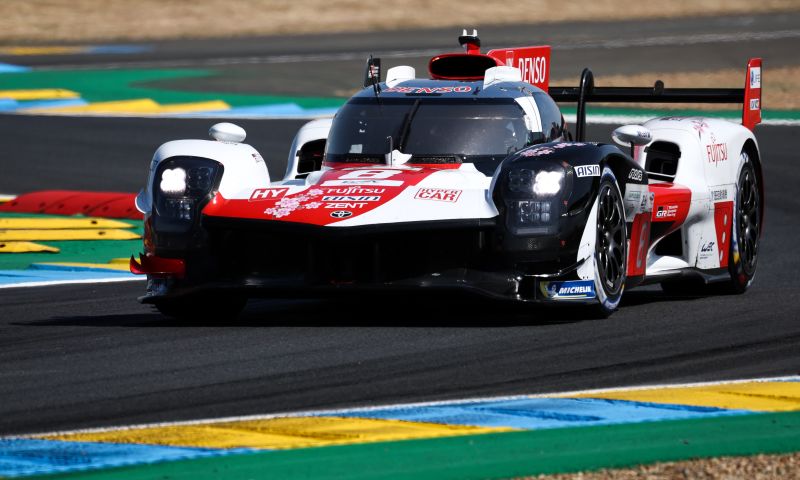General

Balance of Performance in F1? Le Mans has it and top teams are not happy
- Ludo van Denderen
Once an F1 team is hugely dominant in Formula 1, there are always voices calling for artificially creating a level(er) playing field. This means that the introduction for a Balance of Performance (BoP) is a possibility. The top teams in the hypercar class will have to deal with it next weekend at the 24 Hours of Le Mans in a stricter form than originally agreed, to the displeasure of several participants.
Manufacturers like Toyota, Ferrari and Cadillac put tens of millions into their endurance projects every year. The investments are not missing their effects: the teams are currently the most successful in long-distance racing, with Toyota being by far the best. It was expected, in advance, that these three teams would decide who would win the most coveted WEC race of the season next weekend. But the FIA and the organising Automobile Club de l'Ouest (ACO) have determined the already existing Balance of Performance will be extended in the run-up to the Le Mans 24 Hours.
36 kilos of weight added
The minimum weight of Toyota, winner of all three WEC races this season, has been increased by a whopping 36 kilos after a complicated calculation. Ferrari, which made a remarkably strong entry into the WEC's premier class, must also 'pay' for its good performance, with the 499P LMH's weight increasing by 24 kilograms. Cadillac has to make do with 11 kilograms of extra ballast, while the Porsches gain three kilograms. For Peugeot, Glickenhaus and Vanwall, nothing changes with the new BoP.
To make a comparison, Red Bull Racing is currently by far the best in Formula 1, having done an excellent job in the factory, which is then continued on the track by a top driver. If Formula 1 were to have a BoP, it meant that Red Bull would, at some point, receive a 'penalty' for doing a good job, and therefore the car would have to become much heavier. As we know, a heavier car means lost time, so the competition can then creep closer.
Top teams in WEC not happy
In Formula 1, such a rule seems unthinkable, given the huge investments teams make to be the fastest. In the WEC, it is possible, as participants in the hypercar class knew in advance that the BoP was in the regulations. Still, the teams are not happy, to say the least, because discretely and without the teams' approval, the FIA and the ACO decided to modify the BoP in the run-up to Le Mans. Teams have been told that "a correction" has taken place, even though, according to the regulations, it would no longer be possible at this point in the season.
Kamui Kobayashi, Toyota's team boss and driver, commented on Twitter on the adjustment. "36 kg means a loss of 1.2 seconds per lap. It's a very, very painful change. I have no choice but to win. Engineers, I apologise for my incompetence. But even in this difficult situation, I will make a good car and win!"
Danger of deliberately driving slower
For teams in the WEC, Le Mans is the most important race of the season by far. Everything else is nice for teams and drivers, but it's all about that iconic race in France. For this season, the top teams have to deal with the new conditions. In the longer term, this precedent could drive the next problem. If a BoP adjustment proves possible just before Le Mans, and the fact that Le Mans makes or breaks the season for teams, teams like Toyota and Ferrari could start 'sandbagging' a subsequent season, as deliberately driving slower than they are actually capable of means they retain their advantage for the 24 Hours of Le Mans. For their part, it seems unlikely that the FIA and ACO would be happy about that.
36kg は計算で1周につき1.2秒のロス
— KAMUI KOBAYASHI (@kamui_kobayashi) June 1, 2023
とてもとても痛い変更になりました。
でも勝つしかない、それだけいい車作りをした事の証明でもある。
エンジニアの皆さん、力不足で申し訳無いです。 でもこの辛い状況でもいい車を作って勝つ!
来週の24時間応援お願い致します。https://t.co/uYw8BnPSvE